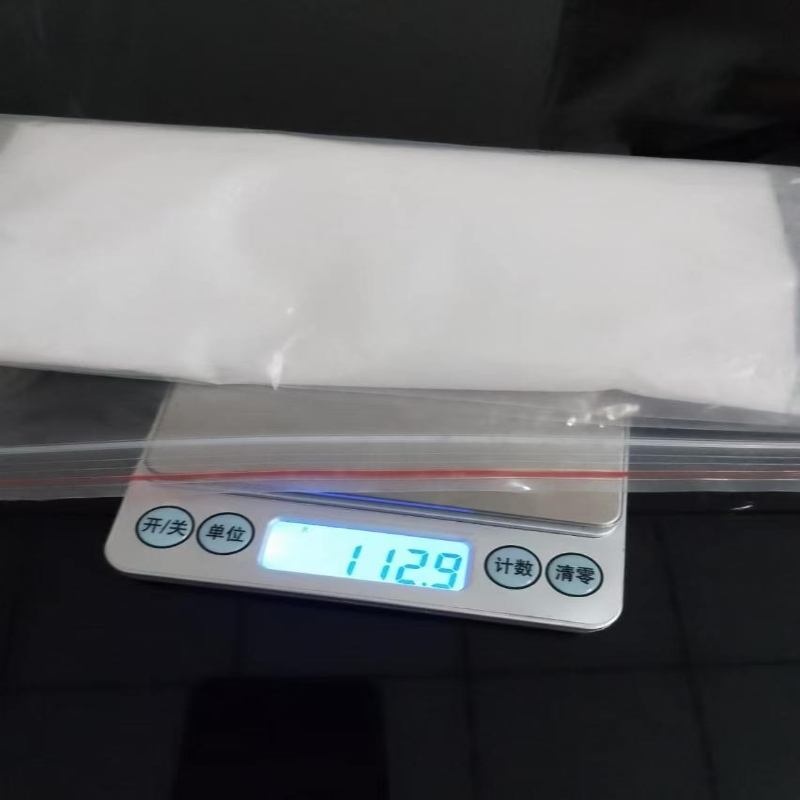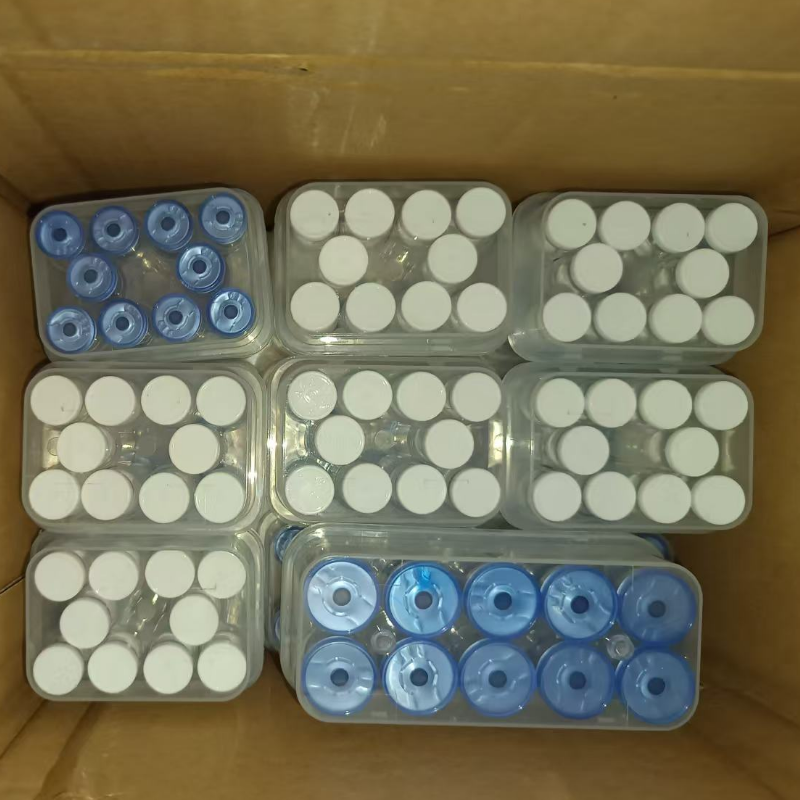-
Categories
-
Pharmaceutical Intermediates
-
Active Pharmaceutical Ingredients
-
Food Additives
- Industrial Coatings
- Agrochemicals
- Dyes and Pigments
- Surfactant
- Flavors and Fragrances
- Chemical Reagents
- Catalyst and Auxiliary
- Natural Products
- Inorganic Chemistry
-
Organic Chemistry
-
Biochemical Engineering
- Analytical Chemistry
-
Cosmetic Ingredient
- Water Treatment Chemical
-
Pharmaceutical Intermediates
Promotion
ECHEMI Mall
Wholesale
Weekly Price
Exhibition
News
-
Trade Service
*Only for medical professionals to read and reference for 1 minute a day, to give you professional "talks" in the tumor circle! (If you need the original text, you can add Xiaobian WeChat yxj_oncology to get it.
) Key points Lancet Oncol: Tumor molecular typing may guide the choice of renal cell carcinoma treatment plan Lancet Haematol: Add 4 doses of rituximab to the treatment of precursor B-cell ALL , EFS regrets not improving new drugs: domestic PD-1 monoclonal antibody was approved in phase III clinical trials in China for the treatment of limited-stage small cell lung cancer New drugs: FGFR inhibitor pemitinib was approved in China for the treatment of adult cholangiocarcinoma 01Lancet Oncol: Tumor molecular typing may guide the selection of renal cell carcinoma treatment regimens for different subtypes of renal cell carcinoma, which may also respond differently to drugs due to differences in tumor microenvironment and drug sensitivity
.
A recent study comparing nivolumab with or without ipilimumab and a vascular endothelial growth factor receptor-tyrosine kinase inhibitor (VEGFR-TKI) in different molecularly subtyped tumors (ccrcc1-ccrcc4) In the first-line treatment of clear cell renal cell carcinoma, the choice of treatment regimen (nivolumab with or without ipilimumab) was based on tumor molecular type.
mAbs or VEGFR-TKIs) are feasible
.
This phase II randomized, open-label study enrolled adult patients with treatment-naïve clear cell renal cell carcinoma with an Eastern Cooperative Oncology Group (ECOG) performance status score of 0-2
.
The ccrcc1 and ccrcc4 groups were randomly assigned (1:1) to receive nivolumab or nivolumab + ipilimumab (combination therapy), and the ccrcc2 and ccrcc3 groups were randomized (1:1) to receive VEGFR-TKI ( sunitinib or pazopanib) or combination therapy
.
The primary endpoint was objective response rate (ORR) assessed according to RECIST 1.
1.
criteria
.
The results showed that in the cCRCc1 group, 12/42 patients who received nivolumab and 16/41 patients who received combination therapy experienced an objective response (OR 0.
63; 95%CI 0.
25-1.
56); Objective responses were seen in 7/16 patients with vulimab and 9/18 patients with combination therapy (OR 0.
78; 95%CI 0.
20-3.
01); in the cCRCc2 group, 18/36 patients receiving VEGFR-TKI, Objective response was seen in 19/37 patients receiving combination therapy (OR 0.
95; 95%CI 0.
38-2.
37); in the cCRCc3 arm, no objective response was observed in 4 patients receiving VEGFR-TKI and 1 patient receiving combination therapy No objective response was observed in /5 patients
.
Serious treatment-related adverse events occurred in 3% of patients in the nivolumab group, 38% in the combination group, and 25% in the VEGFR-TKI group
.
There were 3 treatment-related deaths: 1 in the combination-therapy group, fulminant hepatitis; 2, sunitinib, heart failure and thrombotic microangiopathy, respectively
.
02Lancet Haematol: The addition of 4 doses of rituximab to the treatment of precursor B-cell ALL did not improve event-free survival At present, the treatment regimen for adult acute lymphoblastic leukemia needs to be improved
.
Recently, a study comparing the effect of adding 4 doses of rituximab to standard treatment of precursor B-cell acute lymphoblastic leukemia (ALL) was published in Lancet Haematology.
However, the results showed that compared with standard treatment, Adding 4 doses of rituximab did not significantly improve event-free survival (EFS)
.
According to the researchers' preliminary analysis, it may be because the dose of 4 doses is insufficient
.
This multicenter phase 3 randomized controlled trial enrolled patients 25-65 years of age with new-onset BCR-ABL1-negative ALL, or 19-65-year-old patients with new-onset BCR-ABL1-positive ALL
.
Participants were randomly assigned (1:1) to receive standard induction therapy or standard induction therapy plus 4 doses of intravenous rituximab (375 mg/m2 on days 3, 10, 17, and 24)
.
The primary endpoint was EFS in the intent-to-treat population, and safety was assessed in all participants
.
The researchers analyzed 577 patients (288 in the standard-of-care group and 289 in the standard-of-care plus rituximab group)
.
The 3-year EFS rate was 43.
7% in the standard care group and 51.
4% in the standard care plus rituximab group (HR 0.
85; 95% CI 0.
69-1.
06; p=0.
14)
.
The most common adverse events were infections and decreased red blood cell counts, with no statistically significant difference in adverse event rates between the two groups
.
During induction periods 1 and 2, standard therapy resulted in 11 deaths (4%) and standard therapy plus rituximab resulted in 13 deaths (5%)
.
The 3-year non-relapse mortality (NRM) was 23.
7% in the standard-therapy group and 20.
6% in the standard-therapy plus rituximab group (HR 0.
88; 95% CI 0.
62-1.
26; p=0.
49)
.
03New drug: Domestic PD-1 monoclonal antibody has been approved for Phase III clinical trials in China for the treatment of limited-stage small cell lung cancer Recently, Fosun Pharma announced that its self-developed anti-PD-1 humanized monoclonal antibody Slulimumab injection has been approved by the National Medical Products Administration (NMPA) for phase III clinical trials.
The drug will be combined with chemotherapy and radiation therapy for the treatment of untreated limited-stage small cell lung cancer
.
Previously, slulimumab has been conditionally approved by the NMPA for marketing, and is indicated for unresectable, metastatic highly microsatellite unstable (MSI-H) solid tumors after failure of standard therapy
.
In addition, slulimumab has reached the primary endpoint of overall survival (OS) in an international multi-center Phase III clinical study of extensive-stage small cell lung cancer, and plans to submit registration applications for this indication in China and the European Union this year
.
04New drug: FGFR inhibitor pemitinib was approved in China for the treatment of adult cholangiocarcinoma Today, NMPA approved the FGFR inhibitor pemigatinib introduced by Innovent Biopharmaceuticals, and the indication is FGFR2 fusion or rearrangement of advanced, metastatic, or unresectable cholangiocarcinoma who have received at least one prior systemic therapy
.
Previously, pemitinib has been listed in the United States, Europe, Japan, Taiwan and Hong Kong
.
In an open-label, single-arm, multicenter Phase II clinical study in Chinese patients with advanced cholangiocarcinoma, 15 of 30 patients in the pemitinib arm achieved IRRC-confirmed disease remission, with the primary endpoint ORR of 50%
.
Reference: [1].
Vona Y, et al.
Lancet Oncol.
2022 April 4.
DOI: 10.
1016/S1470-2045(22)00128-0 https:// -2045(22)00128-0/fulltext[2].
Marks DI, et al.
Lancet Haematol.
2022 Apr 1;9(4):e262-e275.
doi: 10.
1016/S2352-3026(22)00038-2.
https:// article/PIIS2352-3026(22)00038-2/fulltext[3].
https://mp.
weixin.
qq.
com/s/Pau-6pqbDugqG4UR3ZH7jQhttps:// [4].
https://mp.
weixin.
qq.
com/s/CHZ3-A-yOVrj7PP9E4vduA







